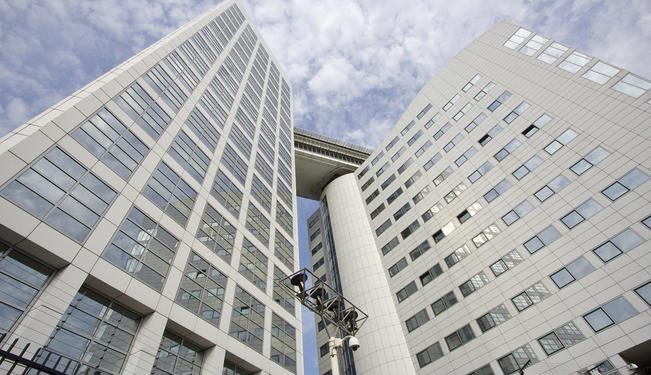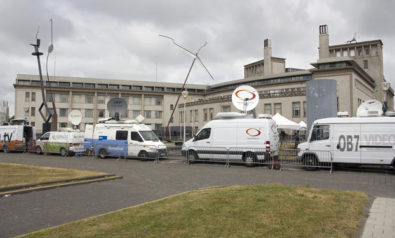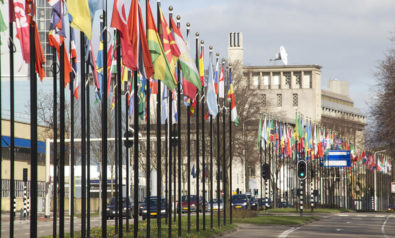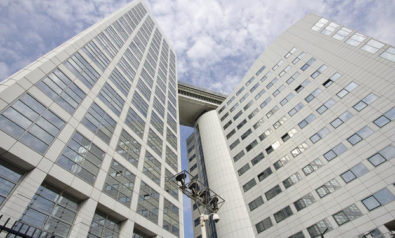A critical look on why Kenya should not withdraw from the ICC.
December 29, 2007, marked the beginning of the darkest two months in Kenya’s 45 years of independence. In the preceding five years, the country had rid itself of President Daniel Moi’s dictatorial regime and, after 24 years of oppression, had ushered in a government that oversaw economic expansion and renewed respect for media freedoms. The run-up to the 2007 election, however, had shown a country deeply divided along tribal lines. While previous elections had featured tribal clashes in some parts of the country, the fighting was typically limited to well-known “hot spots.” Not many were prepared for the extent of violence that was to come, previously unimaginable for Kenya – an oasis of calm in volatile East Africa.
The chaos first started when riots broke out throughout the country in protest to the Electoral Commission of Kenya’s announcement of Mwai Kibaki as the winner of a dubious vote. International observers cited widespread electoral manipulation in many parts of the country and refused to declare the election free and fair. The violence soon fragmented across ethnic lines as atavistic tensions bubbled to the surface. For the next eight weeks, the country descended into unprecedented levels of violence, at the peak of which 35 people, mostly elderly women and children, were burnt alive at Kiambaa church where they had sought refuge. By the time the two leading candidates reluctantly struck a deal to end the violence in a power-sharing agreement, about 1,200 citizens had been killed and over half a million displaced.
Now, six years later, incumbent President Uhuru Kenyatta and Deputy President William Ruto, along with local radio personality Joshua arap Sang, are on trial at the International Criminal Court (ICC) for crimes against humanity. In recent months Kenya, and numerous African nations, have demanded that the ICC drop the cases and instead bring them before a locally constituted tribunal. The Kenyan government has spent millions of taxpayers’ dollars in an effective shuttle diplomacy campaign to portray the current ICC trial as an imperialist and racial agenda by the West against Africa. Only last month, the African Union met in Ethiopia to formalize discussions around organizing a mass withdrawal from the ICC.
Voluntary referral
Given the fervor with which the Kenyatta government has argued against having the Kenyan cases tried at the ICC, one might be forgiven for thinking that the Kenyan government was indeed coerced into sending the cases to The Hague. However, nothing could be farther from the truth. As part of the post-election compromise by the two principals to end the political impasse, the Commission of Inquiry on Post Election Violence (CIPEV) – colloquially known as the Waki Commission – was set up to investigate the facts surrounding the post election violence and make recommendations to avoid the same in the future.
The Waki Commission’s Report, besides comprehensively outlining the various factors that culminated in the use of violence in the aftermath of the election, also provided one of the most effective roadmaps to justice by a government-mandated commission in Kenya. The report instructed the Kenyan government to carry out a series of reforms that would culminate in a locally constituted tribunal to try suspects believed to have carried out the violence. As a fail-safe, the commission had prepared a list of the main suspects responsible for the violence that would be handed over to the ICC, if the commission’s recommendations were not executed.
Despite support for the local tribunal by the principals of the coalition government, parliament repeatedly rejected the idea of a local tribunal and consistently blocked attempts by the government to carry out the demands of the report. In a country where local institutions were deeply distrusted to hold the political class accountable, having the cases tried at The Hague seemed to hold the most realistic chance of success.
Local Trials
The Kenyan government has attempted to explain away this argument. In a recent interview with BBC’s news bulletin HARDtalk, Kenya’s Foreign Secretary Amina Mohamed explained that although Kenya had voluntarily referred the cases to the ICC, the country now has a new constitution and has reformed important local institutions enough to handle them locally. Still, one should be skeptical about Kenya’s ability to effectively deal with the cases. Since independence, Kenya has never seen a high-ranking official or senior politician arrested and held accountable to the full extent of the law in connection with a high-profile criminal case. This holds true in spite of the wealth of high-profile corruption scandals, political assassinations, as well as drug and human trafficking cases that have been linked to well-known politicians.
A closer study of the reasons why parliament blocked attempts to have a local tribunal increases doubts about the current government’s desire to try the cases in Kenya. Some politicians were weary of a local judicial process that could be prone to manipulation, and others who felt that the ICC process would take years to bring the cases to trial, giving enough time for the suspects to maneuver to stronger political positions. Initially, the phrase “Let’s not be vague, let’s go to The Hague!” was coined by Isaac Ruto, a close ally to the current deputy president, as a rallying call to push the cases to be tried at the ICC. However, the same politicians back-pedaled once they realized the cases were moving faster than anticipated.
Likewise, a cursory glance at the current political climate reveals a government that is superficial with its intention to try the cases locally. In December 2013, President Kenyatta endorsed a series of draconian changes to the media freedoms allowed in the new constitution that would negate the progress made in the last decade. The moves, once signed into law, will allow the executive to control media houses through a government-controlled tribunal. The ease with which the government is clawing back on fundamental freedoms that Kenyans have defended for decades is disconcerting, and questions the Kenyatta administration’s willingness to put its citizens’ interests before its own.
Even more telling is the small number of cases that have been prosecuted in relation to the post-election crimes that were committed in 2008. The Waki Report alleges that there were prominent businessmen and local leaders that were deeply involved in planning and carrying out the violence. Beyond the cases that are before the ICC, no significant arrests and prosecutions have been seen to date. It is hard to understand why the Kenyatta government has not established a local tribunal that would oversee the prosecutions of these crimes. If the current government were serious about its intentions to bring the perpetrators of the violence to justice, we should have seen far more meaningful investigations and prosecutions of these mid-level players.
Justica and Healing
While it is clear that the Kenyan government’s aggressive claims that the ICC is pursuing a racial agenda are completely baseless, the ICC’s record of prosecuting only African cases should be a cause for concern. A credible judicial system should not only provide legal recourse to victims and their defendants alike, but it should also function in a way that is seen to be just. The Court’s disproportionate focus on Africa undermines its credibility as an impartial institution. Nonetheless, it’s important to note in this debate that the Kenyan cases are being tried at the ICC only because of parliament’s refusal to come up with a local solution and not because of the ICC’s propensity to prosecuting African cases.
Lastly, one can only read mischief into the government’s efforts to withdraw the cases from the ICC. Not only are such attempts irresponsible, but they also serve to highlight the blatant disregard to the rule of law that is pervasive within Kenya’s political class. Allowing Kenya to leave the ICC would be a perversion of justice for the victims of the post-election clashes. As Desmond Tutu aptly put it in his recent op-ed in The New York Times, without justice, “there can be no healing, leaving violence and hatred ticking like a bomb in the corner.”
The long walk to healing as a country can only start when Kenyans demand accountability. The deep-seated historical injustices surrounding land disputes, stark development inequalities and the disenfranchisement of unemployed youth that lead to the 2008 violence still need fixing. However, only an honest process that values accountability and eschews impunity will lead to success.
The views expressed in this article are the author’s own and do not necessarily reflect Fair Observer’s editorial policy.
Image: Copyright © Shutterstock. All Rights Reserved
Support Fair Observer
We rely on your support for our independence, diversity and quality.
For more than 10 years, Fair Observer has been free, fair and independent. No billionaire owns us, no advertisers control us. We are a reader-supported nonprofit. Unlike many other publications, we keep our content free for readers regardless of where they live or whether they can afford to pay. We have no paywalls and no ads.
In the post-truth era of fake news, echo chambers and filter bubbles, we publish a plurality of perspectives from around the world. Anyone can publish with us, but everyone goes through a rigorous editorial process. So, you get fact-checked, well-reasoned content instead of noise.
We publish 2,500+ voices from 90+ countries. We also conduct education and training programs
on subjects ranging from digital media and journalism to writing and critical thinking. This
doesn’t come cheap. Servers, editors, trainers and web developers cost
money.
Please consider supporting us on a regular basis as a recurring donor or a
sustaining member.
Will you support FO’s journalism?
We rely on your support for our independence, diversity and quality.







Comment